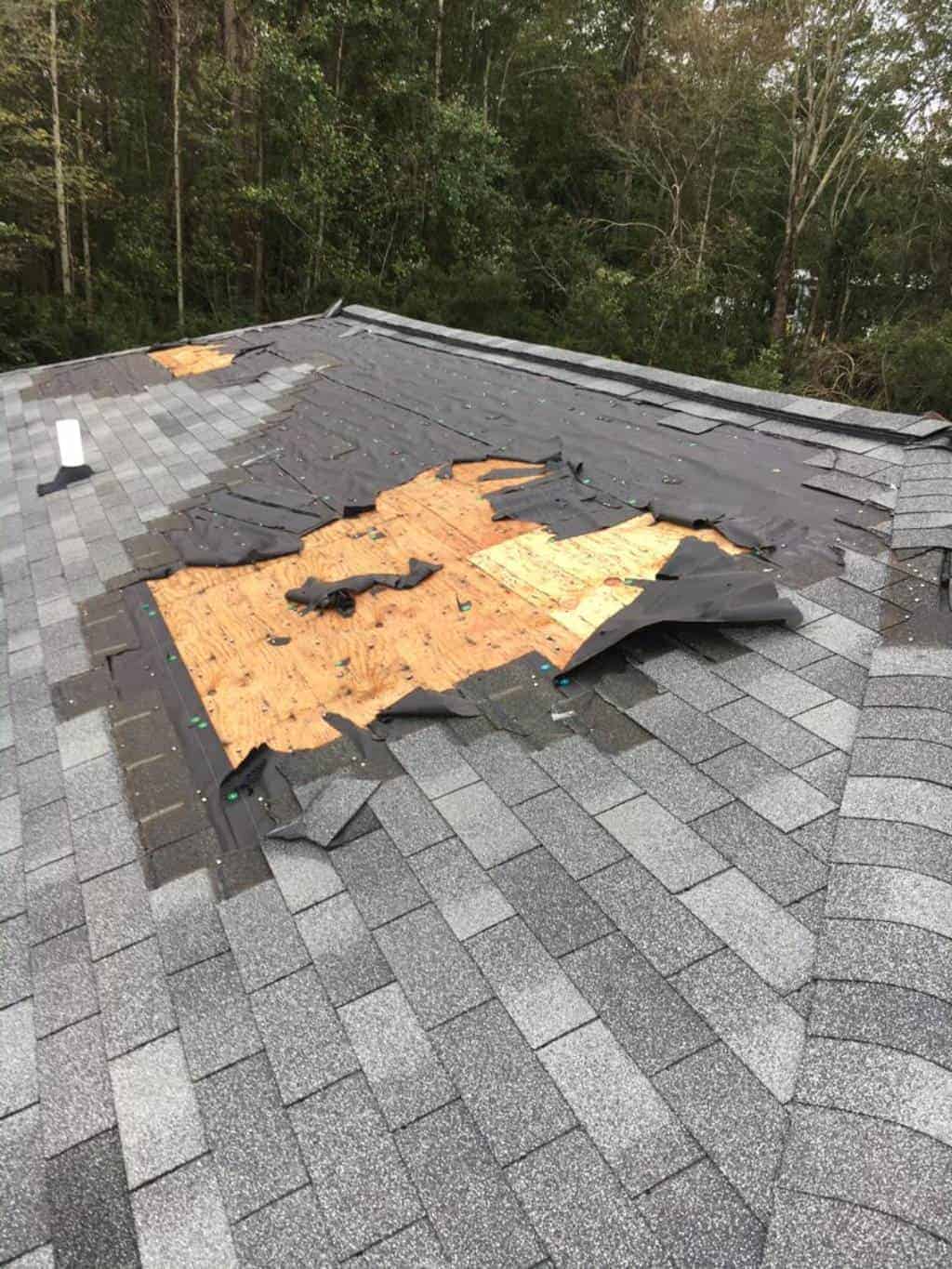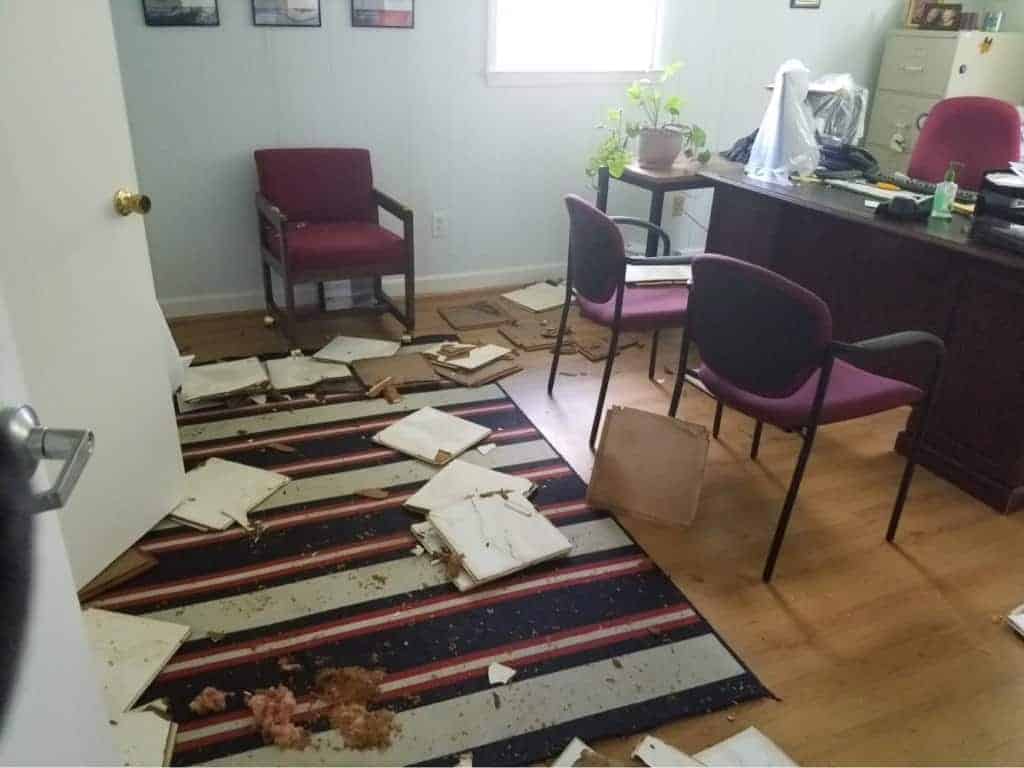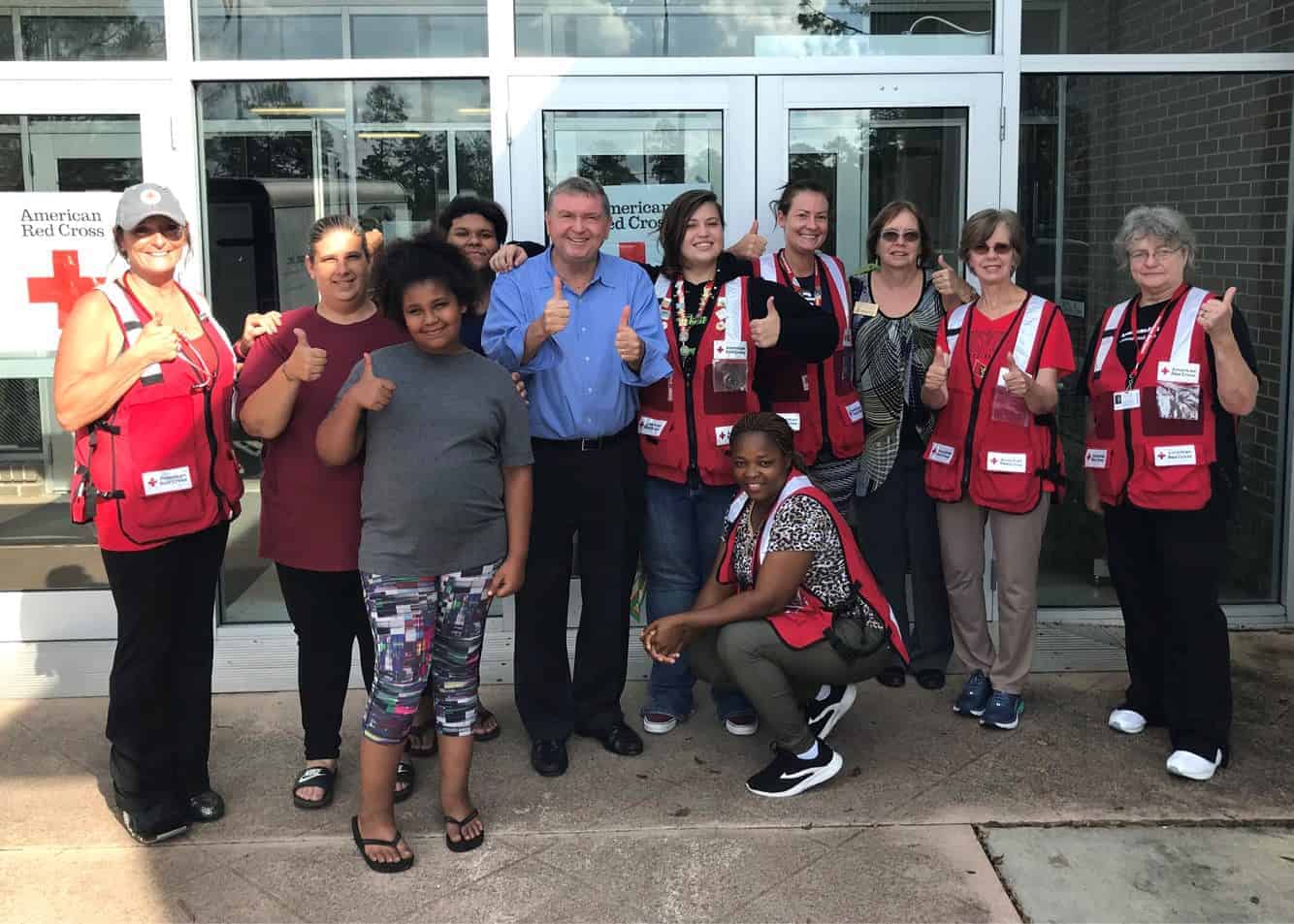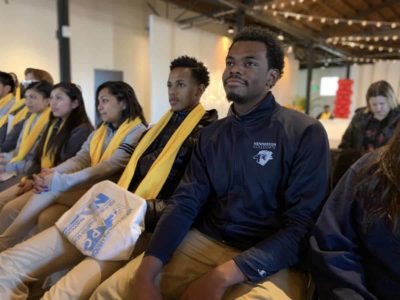Jim Ross has participated in more than his fair share of emergency weather planning. The Pamlico Community College president previously spent 20 years in leadership positions at Brevard Community College in Central Florida, attending numerous emergency planning and response meetings. The meeting he attended with Eastern North Carolina community college leaders on the Monday before Florence made landfall in North Carolina, however, was the most somber he can ever recall.
“Even though this area has had hurricanes before,” Ross said, “in many ways this was unparalleled in terms of rain and flooding.”
Of the 58 community colleges in the North Carolina Community College System, 20 were significantly impacted by Florence. Many of these just resumed classes this week. Cape Fear Community College remains closed until Monday. All of them are still working overtime to assess both the physical damage to campus property as well as effects on students and faculty.
As Florence made its approach and land fall, students and faculty were dismissed early — some seeking refuge outside the region and others hunkering down and preparing for the worst. In its wake, the storm’s physical damage is openly evident in drives through the region. But the emotional toll is perhaps even more severe.
The first challenge facing the region’s community colleges: locating students and personnel. College officials have been working overtime reaching out by e-mail, phone and, in some instances, personal visits to find students. At Edgecombe Community College, they even created a special e-mail account — assistance@edgecombe.edu — for students experiencing challenges returning to classes.
“From the moment we set up and announced the address, we started receiving emails.” said Michael Jordan, vice president of student services at Edgecombe Community College. “I have personally responded to each one.”
The next challenge is helping students transition from the shock and distress. As officials and instructors find students, the stories they are hearing from their faculty and students are harrowing.
One student returned to her home to find that flood waters had risen all the way to the top of the first story of her two-story home. There were fish and snakes inside. The flood waters and other damage rendered the entire property a total loss, and inspectors condemned the land, which housed her home and her family’s business. Having lost both in one fell swoop, the family turned to her for help. She’s now taken a new job and is the family’s only income.
Another student, a mother of four, lost everything to flooding and is afraid she will fail if she tries to finish classes. Her energy and focus is tied up with rebuilding and getting her kids back to normalcy. Faced with the possibility of failing, she is considering dropping out. She’s not alone in this thought — early estimates from a number of community college presidents suggest there are hundreds of students in similar situations contemplating whether they must drop out.
“We know they are going through a lot,” said Kenneth Boham, James Sprunt Community College’s interim president. “What I want to see, what I want to do, is we will continue to work with them and walk with them so the situation becomes a stop out and not a drop out … It would hurt my heart if we have drop outs.”
To this end, Boham is working with his team on alternative approaches, such as holding students who cannot complete Fall semester harmless and allowing them to finish the coursework prior to the next semester. Over at Pamlico Community College, Ross’s message was consistent:
“We have told everyone, our number one priority is the students and making sure we do whatever we can to help them,” Ross said. “I’m optimistic that through compassion we will get through this.”

Assistance may be necessary, as some students may face penalties or repayment obligations from financial lenders if they do not complete their courses. Others who later come back and seek financial assistance could face penalties.
“We need the state legislature to allocate funds so we can help make students whole again,” Boham said.
The General Assembly met on Tuesday, and will meet again on Oct. 15, and is working on an assistance package. In the meantime, the U.S. Department of Education announced federal assistance to college students affected by Florence, who could be eligible for grants totaling $2.8 million ($2 million for students in North Carolina). The emergency money was made available by the Federal Supplemental Educational Opportunity Grant program.
Students who have returned to classes are also left wondering how instructors will handle so much missed class time — which varies from 10 to more than 15 days across the schools. Instructors must hold class for certain minimum hours for accreditation purposes, or else students may not get the credits for their coursework. But while some faculty work diligently on plans to address this, others are trying to figure out how to re-piece their lives from Florence devastation as well.

One instructor lost everything but one mattress, some clothes, and pots and pans. Another was rescued from her home and evacuated by boat. She’s rebuilding, too. Still another saw 3.5 feet of flood water render his brand new home a total loss. He is living with family more than 100 miles away from work — and still commuting the two hours each way to be there for his students.
“They’re traumatized from the experience,” James Sprunt instructor Amber Dail said of students and faculty. “We’ll get through it. It’s just going to take a lot of love and patience.”




